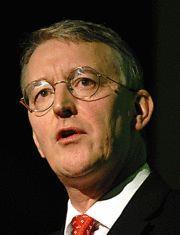
The food security debate has reached a tumultuous head, as fears the UK may be “pulling up the drawbridge” on imports mount.
Paul Monaghan, head of ethics and sustainable development at The Co-operative Group, told freshinfo: “We need to set up an equal system. To an extent, the food security debate is just the first step in pulling up the drawbridge and protecting our own.”
At an Ethical Shopping conference held at the British Library last week, Monaghan insisted that too much focus is being put on reducing imports to the UK, while British exports were being ignored.
He said: “No-one mentions the £11 billion of exports from the UK and nine per cent growth we have enjoyed [in that]. No-one says ‘let’s shut down the heated greenhouses in Scotland growing seasonal produce to save the environment’ - why do I never hear that?”
Kath Dalmeny, head of policy at Sustain, the alliance for better food and farming, admitted “it is completely bonkers and not viable to send [produce] to China” and pointed to gatekeepers such as the government, buyers and local authorities as the key to UK food security.
But Peter Harper of the Centre for Alternative Technology suggested that the UK’s food security is still assured. He told delegates: “We need some realism. It is unlikely that the UK import system will break down in the next 50 years and, even then, we could probably survive on domestic produce.
“By 2015, we will know whether we can stop climate change and, if not, work out how to adapt and predict how sustainable we can be with food, with oil running out and reforestation too, [so it is] not so much of a gamble,” he said.
Harper told Freshinfo: “If we held this conference in 2015 I genuinely think we could be discussing how we can feed the world from Europe. As the climate warms up, our exports may grow from Europe as parts of the world become unable to produce.”
Officials speaking at the event claimed that because the majority of the UK’s food imports come from within the “stable markets” of the EU, food security concerns should be quashed. However, most European agriculture is also heavily reliant on oil-based fertilisers and other finite resources and the EU food system’s dependency on third countries’ land, water, energy and labour is hard to deny.
DEFRA secretary Hilary Benn has called for a Kyoto-style international agreement to tackle rising agricultural prices and environmental concerns triggered by food production, in a speech to the Fabian Society on last night.
Benn said: “By 2050 there will be nine billion of us living on this small and
fragile planet. And the question is: do we have the capacity to feed
the equivalent of another two Chinas?”
Benn’s call for action came as he announced the members of a new high-level group to advise on all aspects of food policy.
Chaired by Dame Suzi Leather, the membership of the Council of Food Policy Advisors represents expertise in every aspect of the food system.
Dame Suzi Leather, who will chair the Council, said: "I'm looking forward to working with the other members of the Council of Food Policy Advisers to examine the practical solutions needed to maintain UK and global food security and the long term sustainability of the food chain.
The group will advise on issues ranging from production to retail and from regulation and distribution to consumption, as well as on securing the UK’s food supply, the affordability of food and the industry’s environmental impact.
Benn’s rallying cry comes after a six-month government consultation into food security in the UK, prompted by global food prices rising from 2006 to 2008 and political unrest in 14 countries.
However, a new report from the Soil Association called An Inconvenient Truth About Food sees the body label the UK government “complacent” on the issue.
The Soil Association argues that a truly sustainable and secure UK agriculture system will require less oil and fewer chemicals, meaning adoption of new mixed-farming and organic techniques to sustain long-term soil fertility and structure. The body also claims greater numbers of people will need to be involved in food production and support to local distribution.



